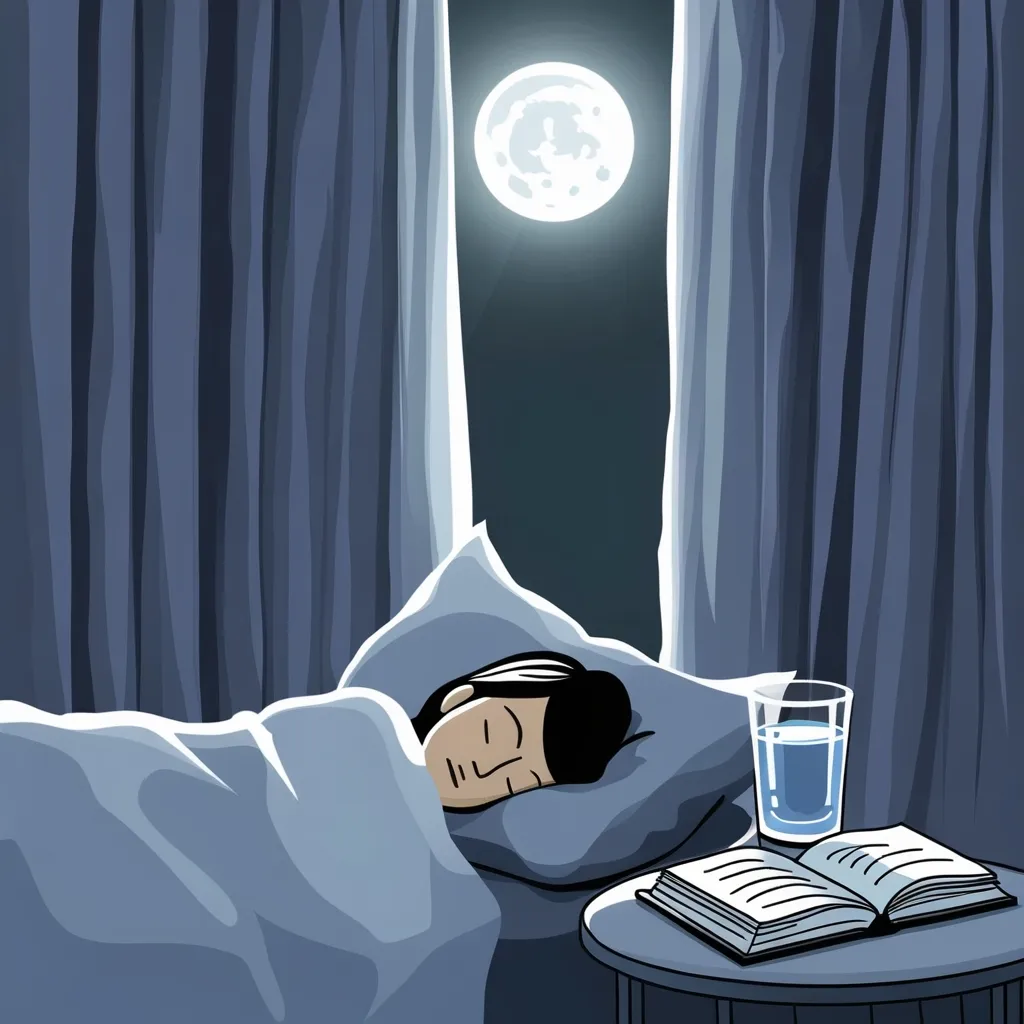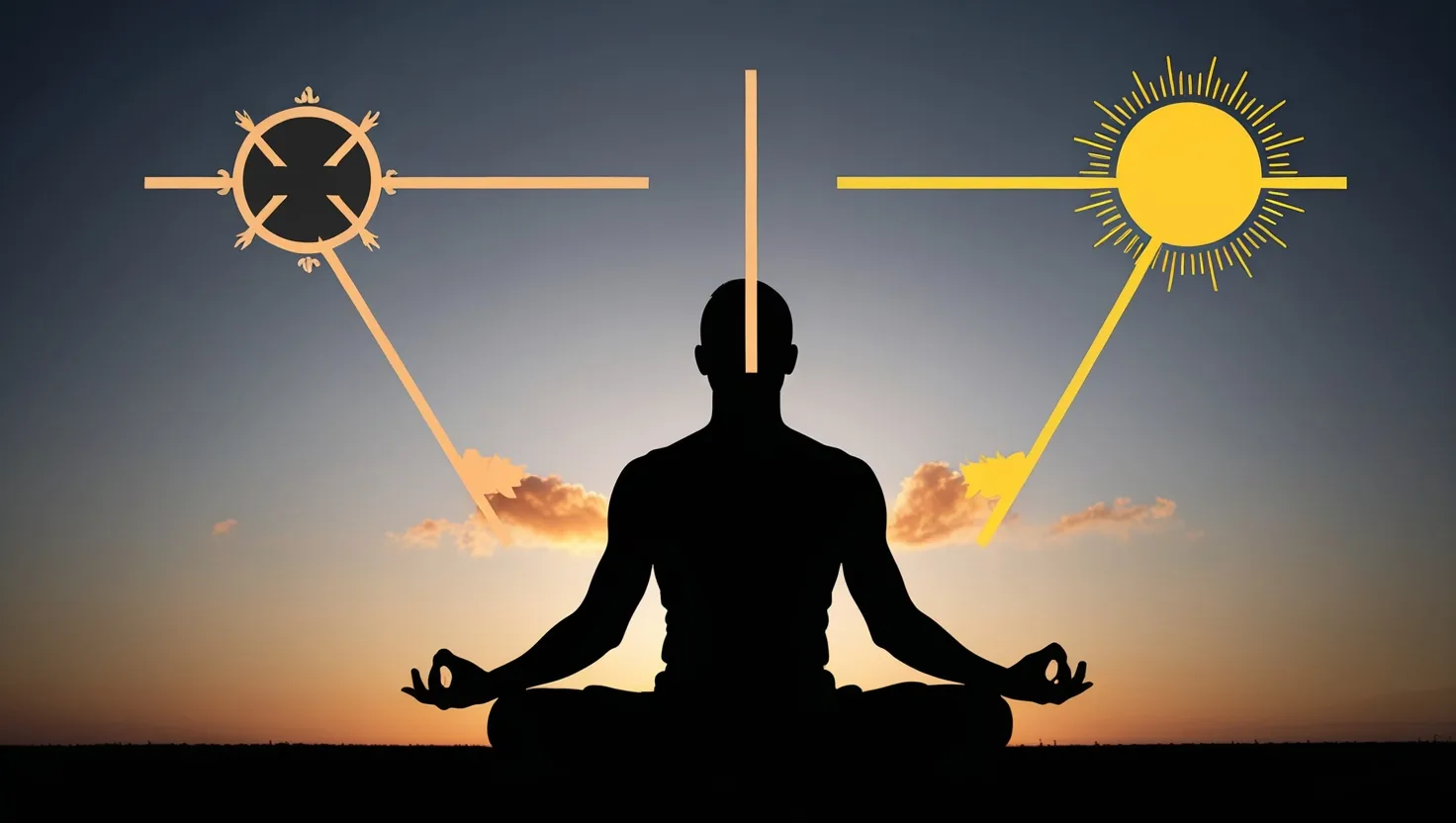Sleep: The Unsung Hero of Our Health
We often take sleep for granted, don’t we? It’s like that reliable friend who’s always there, but we only really appreciate when they’re gone. Sleep is the silent guardian of our well-being, working tirelessly behind the scenes to keep us healthy, happy, and functioning. But what’s really going on when we drift off to dreamland?
Let’s dive into the fascinating world of sleep cycles and why getting your Zs is more important than you might think.
The Sleep Cycle: More Than Just Closing Your Eyes
Think sleep is just about lying still with your eyes closed? Think again! When you hit the hay, your body and brain embark on an incredible journey through different stages of sleep.
It all kicks off with Non-REM (NREM) sleep. This is like the warm-up act before the main event. You start in Stage 1, where you’re still kind of aware of your surroundings. It’s that weird feeling when you’re not quite asleep but not really awake either. Then you slide into Stage 2, where things start to slow down. Your heart rate chills out, and your body temperature drops a bit.
But the real magic happens in Stage 3. This is deep sleep territory, folks. It’s when your body goes into repair mode, fixing up any damage and giving your immune system a boost. It’s like sending your body to the garage for a tune-up while you’re zonked out.
After NREM comes the star of the show: REM sleep. This is where things get wild. Your brain activity ramps up, your eyes dart around like crazy (hence the name Rapid Eye Movement), and you start dreaming. It’s like your brain decided to throw a party while you’re sleeping.
This whole cycle repeats throughout the night, usually about 4-5 times. Each cycle lasts about 90-120 minutes. As the night goes on, you spend less time in deep sleep and more time in REM sleep. It’s like your brain is saying, “Okay, we’ve done the repairs, now let’s have some fun!”
Why Sleep is a Big Deal
Now, you might be thinking, “So what? Why should I care about all this sleep cycle stuff?” Well, buckle up, because sleep is way more important than you might realize.
First off, sleep is like a car wash for your brain. When you’re snoozing, your brain is busy clearing out all the junk that’s built up during the day. And we’re not just talking about random thoughts about what to have for dinner. We’re talking about potentially harmful toxins, including some that have been linked to Alzheimer’s disease. Your brain has this cool drainage system that works overtime while you sleep, flushing out these toxins. It’s like giving your brain a deep clean every night.
Sleep is also your immune system’s best friend. While you’re catching those Zs, your body is hard at work producing these things called cytokines. They’re like the special forces of your immune system, fighting off infections and inflammation. Skip out on sleep, and you’re basically leaving your body’s defenses down. It’s like trying to fight a battle with half your army on vacation.
And let’s talk about metabolism for a sec. You know how people say you can’t out-exercise a bad diet? Well, you can’t out-sleep a bad diet either, but sleep does play a huge role in your metabolism. Mess with your sleep, and you’re messing with your body’s ability to process glucose. In fact, even one night of bad sleep can put your body in a prediabetic state. Yikes!
Sleep and Your Mood: It’s Complicated
Ever notice how you turn into a grumpy cat after a bad night’s sleep? That’s not just you being dramatic. Sleep, especially REM sleep, is crucial for processing emotions and consolidating memories. It’s like your brain’s way of sorting through all the emotional baggage from the day and filing it away neatly.
Skip out on REM sleep, and you’re basically leaving all that emotional stuff scattered around your brain. No wonder you wake up feeling irritable and anxious! It’s like trying to work in a messy office - everything’s all over the place, and you can’t find what you need.
Sleep Needs: One Size Doesn’t Fit All
Here’s the thing about sleep - we all need different amounts at different stages of our lives. Babies and young kids need a ton of sleep, like 12-16 hours a day. (No wonder new parents are always so tired!) School-age kids need about 10-14 hours, while teenagers need 9-12 hours. And us adults? We’re looking at 7-9 hours a night.
But here’s a myth we need to bust: older adults don’t need less sleep. Sure, sleep quality might not be as great as we get older, but the amount we need stays pretty much the same. So if you’re hitting your golden years and think you can get by on 5 hours a night, think again!
Busting Sleep Myths
Speaking of myths, let’s tackle a big one: the idea that you can “catch up” on sleep. You know, stay up late all week and then sleep in on the weekend? Sorry to break it to you, but it doesn’t quite work like that. While you might feel a bit better after a long lie-in on Saturday, it doesn’t undo the damage from a week of poor sleep. Your metabolism and immune system are still going to be out of whack.
Another myth is that alcohol helps you sleep better. Sure, it might help you fall asleep faster, but it messes with your sleep cycles, especially REM sleep. So you might conk out quickly after a nightcap, but the quality of your sleep is going to suffer.
What’s Messing With Your Sleep?
There are a ton of things that can mess with your sleep. Genetics play a role, as do certain health conditions. But let’s talk about the stuff we can control.
Caffeine is a big one. That afternoon coffee might be keeping you up later than you think. Caffeine can hang around in your system for up to 8 hours, so that 3 pm pick-me-up could still be affecting you at 11 pm.
Alcohol, as we mentioned, is another culprit. It might make you feel sleepy, but it’s not doing you any favors in the long run.
And let’s not forget about screens. That last-minute Instagram scroll before bed? It’s messing with your melatonin production. Melatonin is like your body’s sleep signal, and the blue light from screens can suppress it.
Improving Your Sleep Game
So, how can we improve our sleep? It’s not just about getting more hours in bed (although that helps). It’s about improving the quality of your sleep.
First up, consistency is key. Try to go to bed and wake up at the same time every day, even on weekends. Your body loves routine, and this helps regulate your internal clock.
Create a sleep-friendly environment. Keep your bedroom cool, dark, and quiet. Invest in a good mattress and pillows. It’s amazing how much difference a comfortable sleep setup can make.
Watch what you eat and drink, especially close to bedtime. Heavy meals right before bed can mess with your sleep. And while we’re at it, try to cut out caffeine in the afternoon and evening.
Develop a bedtime routine. This could be reading a book, taking a warm bath, or doing some gentle stretches. It’s like giving your body a heads-up that it’s time to wind down.
Exercise regularly, but not too close to bedtime. A good workout can improve sleep quality, but if you’re doing high-intensity exercise right before bed, you might find it hard to wind down.
Personal Sleep Hacks
Everyone’s different, so what works for one person might not work for another. Here are a few personal sleep hacks you might want to try:
-
Keep a sleep diary. Jot down when you go to bed, when you wake up, and how you feel during the day. This can help you spot patterns and figure out what’s working and what’s not.
-
Try a white noise machine or app. Some people find that background noise helps them sleep better.
-
Experiment with different pillow types. Maybe you’re a side sleeper who needs extra support, or maybe you prefer a flatter pillow. Finding the right pillow can make a big difference.
-
Consider a weighted blanket. Some people find the extra weight comforting and sleep better with one.
-
Practice some relaxation techniques before bed. This could be deep breathing, progressive muscle relaxation, or even a bit of light yoga.
The Bottom Line on Sleep
Sleep isn’t just a luxury or something we do because we’re tired. It’s a crucial part of our overall health and well-being. It affects everything from our mood to our immune system to our ability to think clearly.
Understanding your sleep cycles and what affects your sleep can help you make better choices about your sleep habits. And remember, small changes can make a big difference. Maybe it’s setting a consistent bedtime, cutting back on that late-night screen time, or creating a more sleep-friendly bedroom environment.
Whatever changes you decide to make, remember that good sleep is one of the best investments you can make in your health. It’s like giving your body and brain a nightly tune-up, keeping everything running smoothly.
So tonight, when you’re climbing into bed, take a moment to appreciate the incredible journey your body and brain are about to embark on. And who knows? Maybe understanding more about sleep will help you drift off that little bit easier. Sweet dreams!






